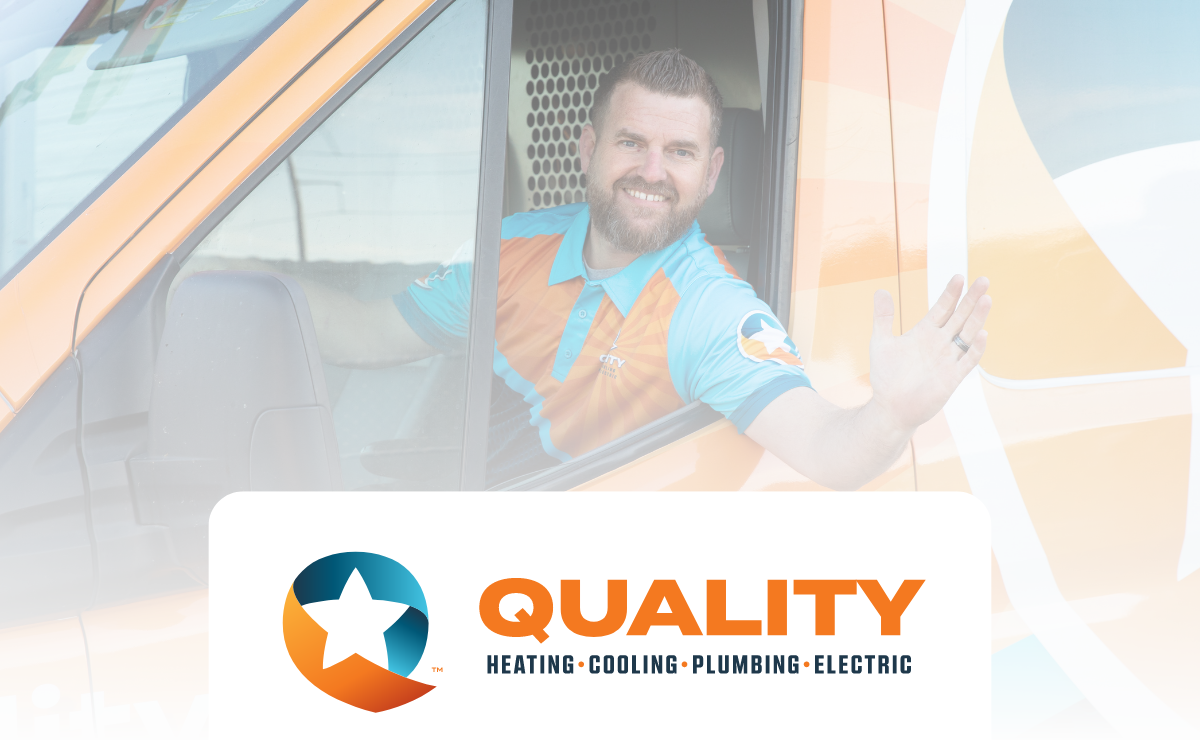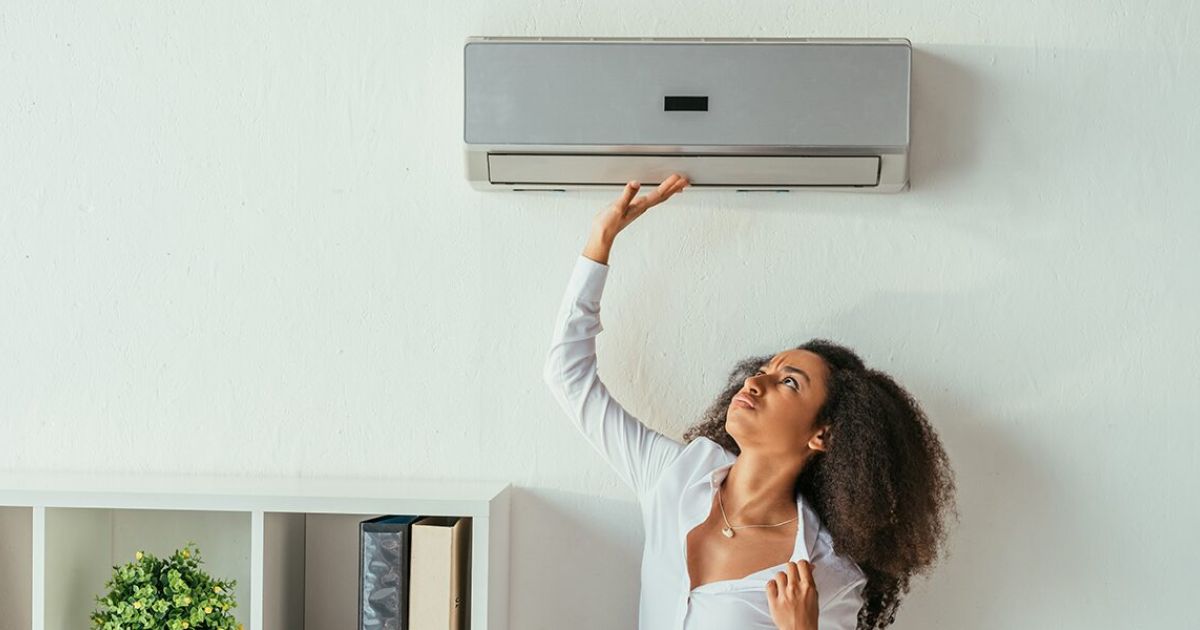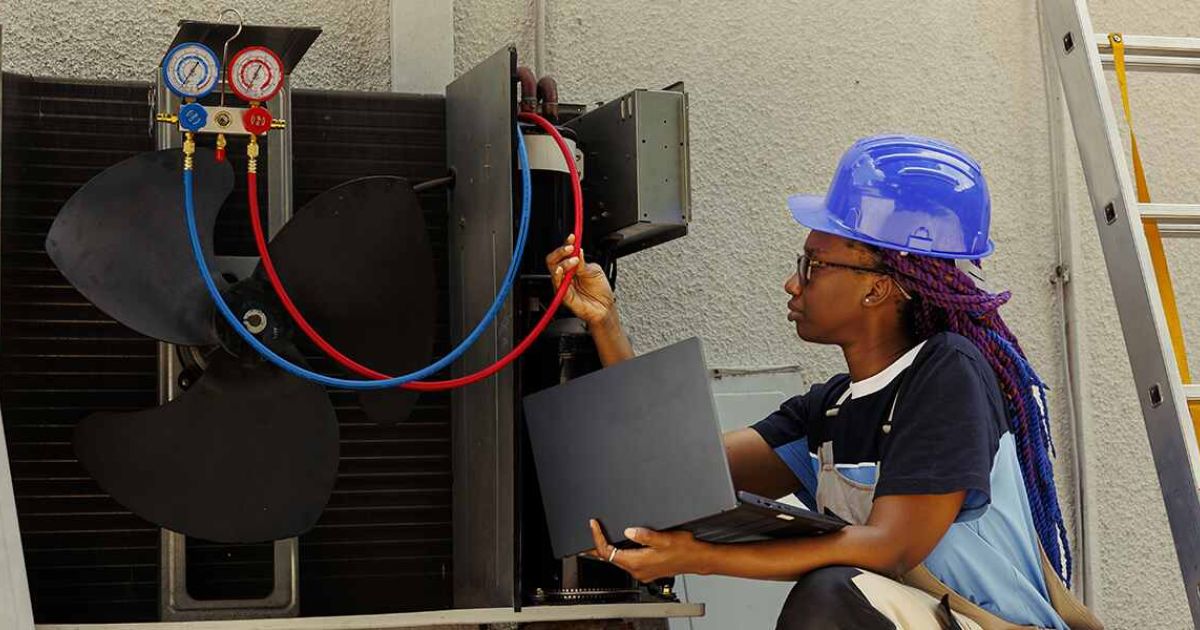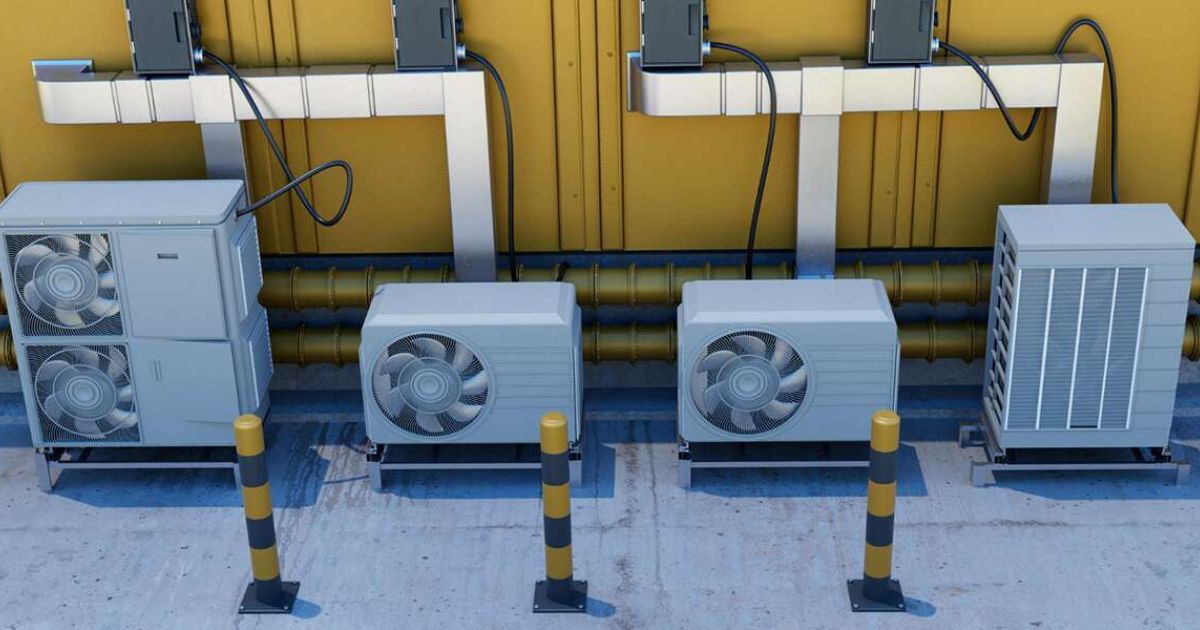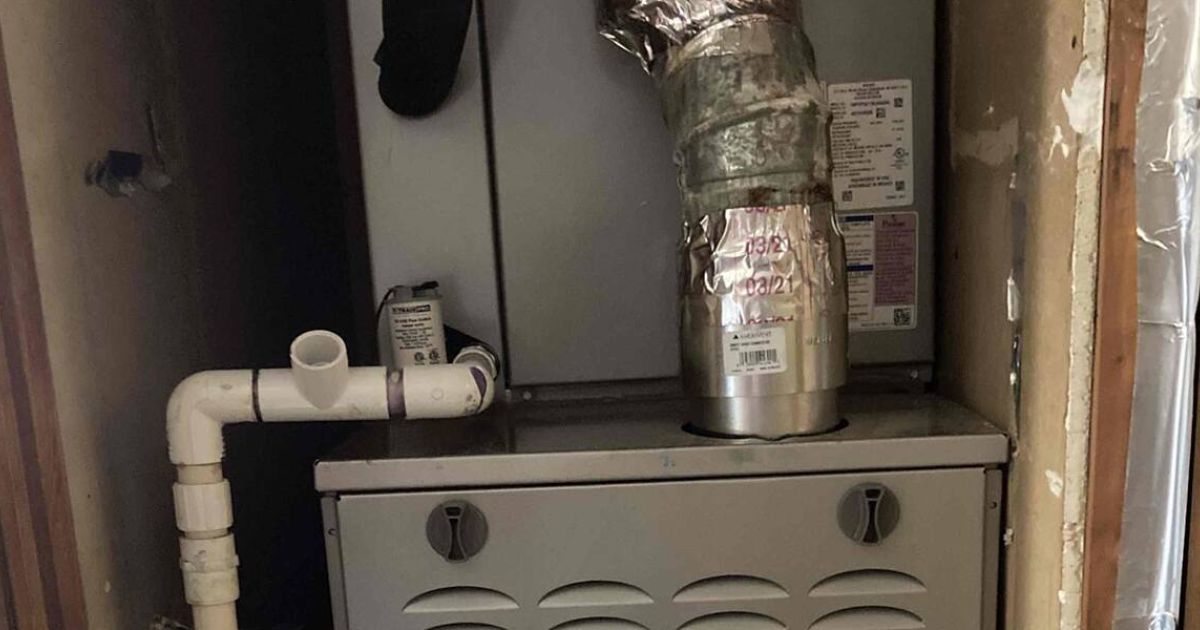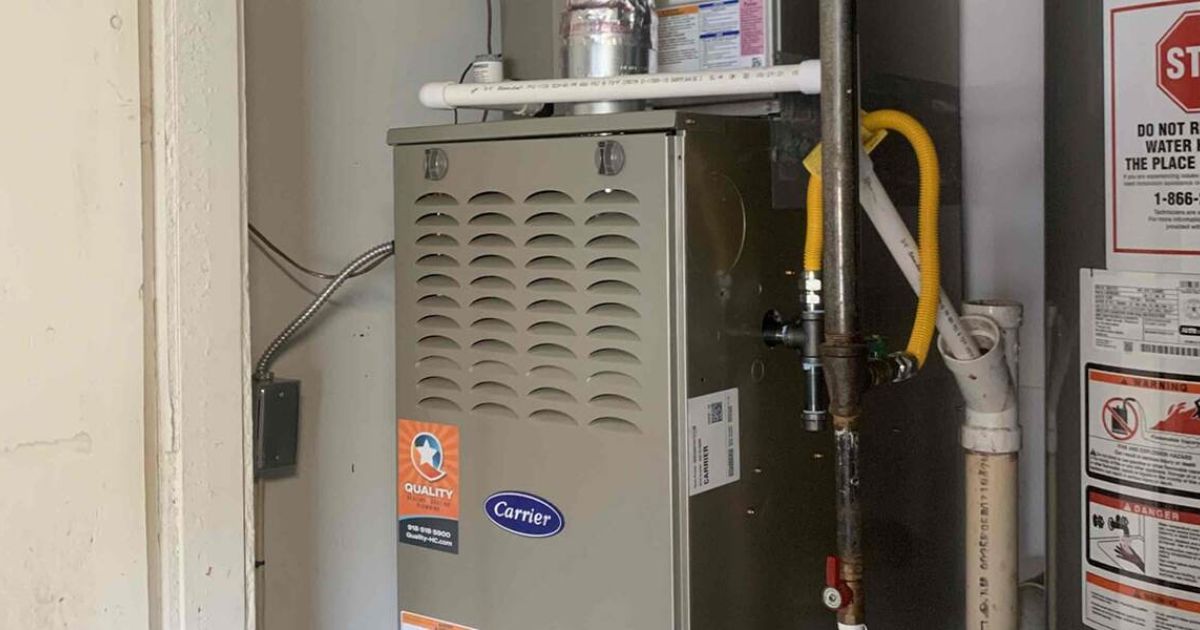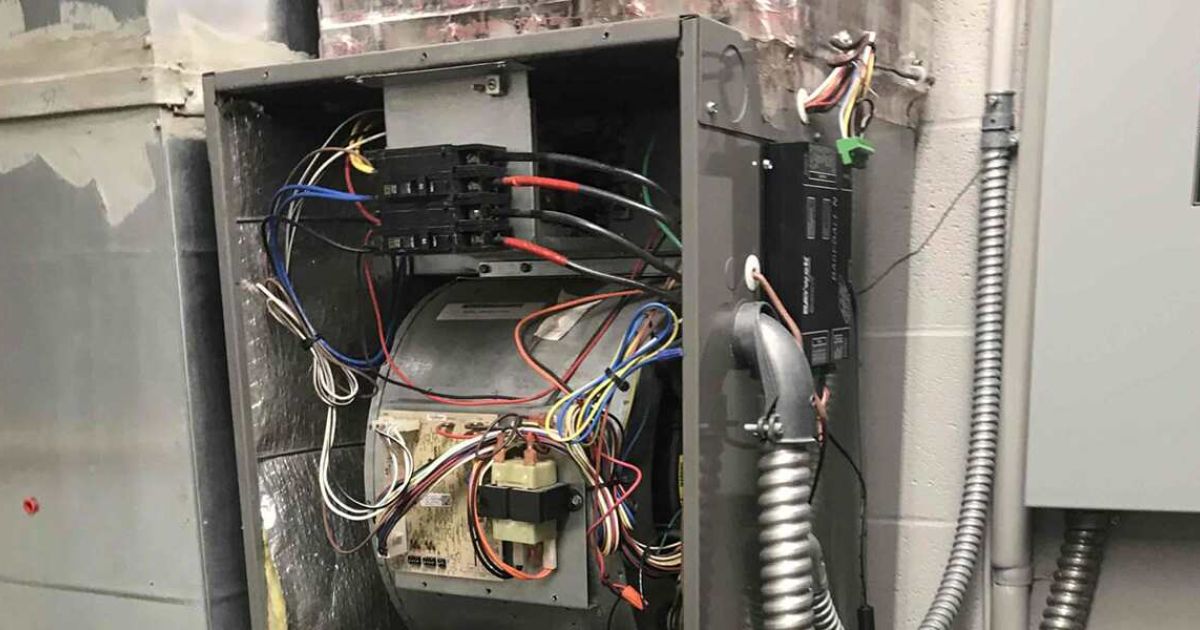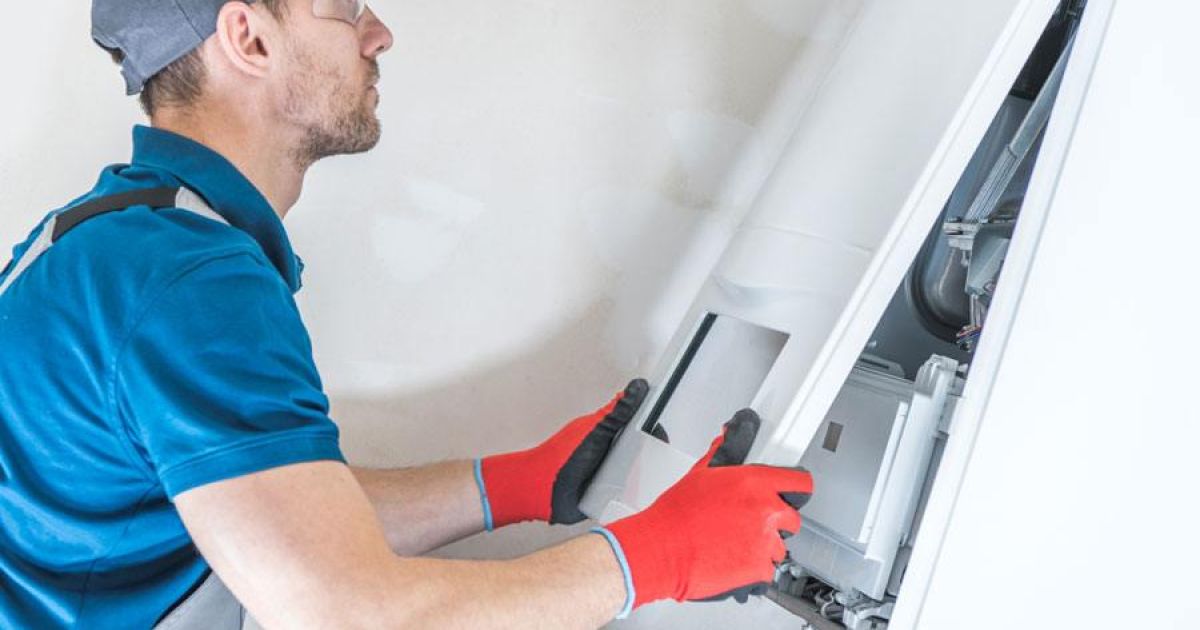
Ready to install a new, more efficient furnace? Call Quality Heating, Cooling, & Plumbing at (918) 393-4204 today!
There’s nothing quite like powering up your home’s furnace on a cold winter day. However, let’s be honest: furnaces tend to act up sometimes and may require repairs.
Unfortunately, in some cases, furnace repairs aren’t enough, and you’ll need to install an entirely new furnace. Many homeowners who find themselves in this tricky situation ask, “How long does it take to install a new furnace?” Our team at Quality Heating, Cooling & Plumbing offers trusted heating installation in Tulsa, OK, and is here to say: furnace installation projects typically take one installation day or four to ten hours.
Let’s explore the factors that impact how long it takes to install a brand-new furnace and how to navigate the furnace installation process.

How to Choose a New Furnace
The worst has come to pass, and your beloved furnace has given up the ghost. What do you do now? First, you should immediately start thinking about installing a new furnace; after all, you want to get your home feeling warm and toasty again as soon as possible.
However, there’s a lot more than meets the eye when choosing a new furnace. Sometimes, homeowners choose the wrong type of furnace, putting their wallets and sometimes their health in jeopardy. To avoid that fate, consider these two factors when selecting your new furnace:
Size
Small furnaces might seem like a great way to save money, but they can cause you a world of hurt. Imagine pairing a small furnace with a large house. You just won’t have enough horsepower to keep your home warm, and your unit will overheat as a result. Large furnaces in small spaces can break ductwork; there’s no winning with a mismatched furnace.
Preventing overheating or other energy troubles is a top priority for any reputable HVAC company. So, your trusty contractors will take more time to install larger units, ensuring they’re properly aligned with your home’s energy system. In any event, seek a smaller furnace for smaller homes, and vice versa.
Type
There’s a seemingly infinite number of furnaces out there on the market. However, they’re all either combustion or electric furnaces. So how can you tell the difference?
Combustion furnaces rely on a source of propane, oil, or natural gas, while electric furnaces use your home’s electricity supply. Interested in boosting energy efficiency? If so, combustion furnaces are perfect for you; they’re much more energy-efficient than electrical furnaces.
However, electrical furnaces have strengths of their own. For instance, they’re significantly cheaper and better for the environment. Moreover, if you’re trying to avoid an especially complex installation process, they might be better.
What HVAC Contractors Consider Before Installing Furnaces
So, it’s clear that furnace size and type play a key part in answering, “How long does it take to install a new furnace?” However, there’s a lot more to furnace installation projects. Contractors have to think about numerous other factors, such as:
- Budget: What are you thinking of spending on your furnace installation project? Contractors always prioritize your financial needs and will help you find the right unit for your circumstances.
- Electrical and gas lines: Does your home have pre-existing electrical or gas lines?
- Home size: Smaller, one-story homes and apartments will have different energy needs than large condos or multi-story properties.
- Ductwork size and quality: Ductwork varies from house to house; are your ducts clean and up-to-date?
Above all, HVAC professionals want you to be happy with the installation process. They’re always happy to answer questions like, “How long does it take to install a new furnace?” or “Which furnace type is right for me?” That being said, it’s best to ask questions before they begin installing your furnace.
The Installation Process
Your contractors have arrived at your home with your brand-new furnace in tow. What should you expect next?
First, your professionals will touch base with you, reviewing the plan for the day in full. Once you’ve squared everything away, they’ll get working in no time. They’ll turn off your home’s heating supply, clear out the area around your furnace, and then work diligently and quickly to get that old nasty unit out of your house.
This first step usually doesn’t take too long: an hour or two at most. Next, they’ll haul in your new furnace, complete with supporting pipes and adapters. If your home’s ductwork matches your new furnace, they can get to work immediately, adjusting and testing your new unit as needed.
However, projects that require ductwork upgrades or expansion can take a bit longer; it’s something to keep in mind. Nonetheless, by the end of the installation day — four to ten hours, at most — you’ll be able to enjoy your new, state-of-the-art furnace.
HVAC professionals want your new furnace to work as best as it can. They’re always glad to help you answer, “How long does it take to install a new furnace?” or any other similar questions.
Cost of Installing a New Furnace
Let’s face it: a lot of people have concerns about the cost of installing a new furnace. “Does it make sense for me to purchase a new furnace?” they ask, or “Aren’t new furnaces all extremely expensive?” These are fair questions, to be sure; however, most furnace installation projects end up saving you money over time.
Electric furnaces cost between $1,000 and $3,000, while combustion furnaces cost $3,000 to $4,500. Combustion furnaces use more complicated technology and parts than electric furnaces and may also require additional installation fees. However, these sorts of furnaces can help you save money over time; natural gas is much more energy efficient than alternative power sources.
Other factors that affect furnace costs include:
- Unit size
- Unit age
- Home size
- Contractor fees
- Additional services (ductwork care, installing new gas lines, etc.)
In any event, ensure you get multiple quotes from licensed, bonded, and insured technicians. You don’t need to compromise on unit quality or your budget when you work with the best!
When to Call Furnace Professionals
When asking how long their furnace installation will take, many homeowners wonder why they can’t just repair their furnaces. It’s true that sometimes, furnace repairs make more sense than installation projects. You can easily perform some furnace repairs at home, such as cleaning a furnace’s inside or changing air filters.
However, DIY furnace repairs can go sideways in a matter of minutes, especially for inexperienced and ill-equipped homeowners. If you’ve got a particularly troublesome furnace, you could even cause a catastrophic fire or explosion if you get something wrong. Why take that risk when you can call the experts?
Don’t let those strange smells or high utility bills pass you by. Get in touch with your local HVAC experts the minute you suspect something’s up. Doing so might just save your life, as unaddressed furnace issues might indicate carbon monoxide buildup or another serious dilemma.
Schedule Your Furnace Installation Today!
Quality Heating, Cooling & Plumbing is your number one choice for furnace installation services in Tulsa, OK. We’re seasoned professionals with the skills, experience, and dedication to complete any and all furnace installation projects, no matter how complicated they might seem. Whether you know which unit you want or need help exploring your options, we have you covered.
So if you’re still asking, “How long does it take to install a new furnace?” or wondering how to clean furnace ignitor, contact our Quality Heating, Cooling, & Plumbing team at (918) 393-4204 today!

Cassie Pound is the Vice President of Quality Heating, Cooling, Plumbing & Electric with locations in Tulsa, Glenpool, and Bartlesville, Oklahoma.

